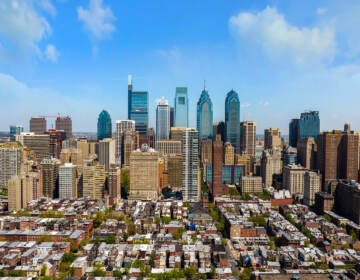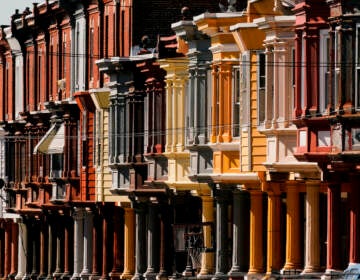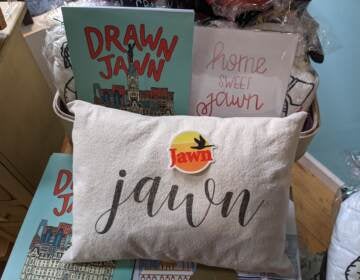You next: Inside Philly’s most underrated urban institution with G. the Barber
Photographer Antonio Johnson talks to the barber he has gone to his entire life.
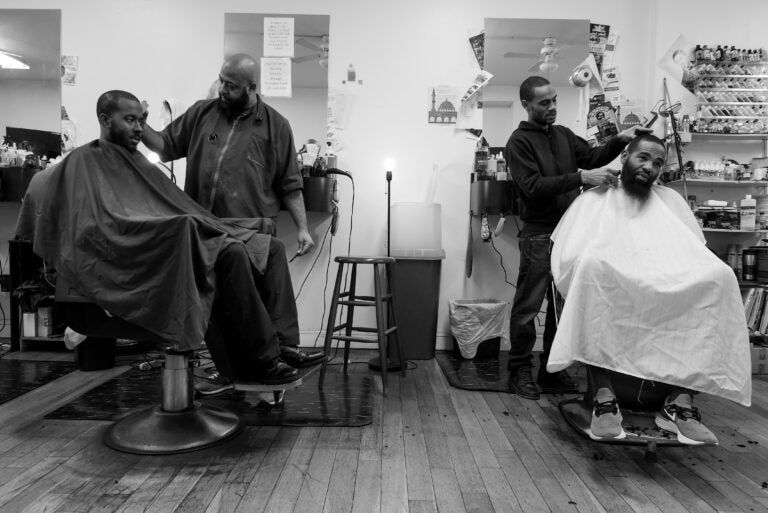
G and his colleague both cutting the hair of clients. (Photo by Antonio Johnson/Produced at Gamin’ Cutz in Philadelphia, PA. December 2019.)
I recently completed a 12-city tour of America’s Black barbershops to document the meaning of these places, to tell the true and untold story of one of the nation’s oldest cultural institutions.
This project, You Next, is an intimate photographic exploration of the ways Black barbershops operate as sites for the cultivation of Black male identity and wellness. I have visited shops in major U.S. cities known for their barbershop culture—Gary, Indiana; Washington D.C.; New York City; Oakland; Atlanta; Los Angeles; Detroit; New Orleans; Montgomery; Memphis, and my hometown of Philadelphia. Since then, I met a toddler in DC on the occasion of his first haircut and a New Orleans barber who’s been in the business for more than half a century. I’ve talked to fathers, sons, husbands, and brothers about what it means to be Black men in America, and what the barbershop means to them. The result of this reporting is a timeless photo book, made available for sale now, of more than 200 images and 12 essays from leading writers Hanif Abdurraqib, Aaron Ross Coleman, Felipe Delerme, Alvin Irby, Julian Kimble, Quincy T. Mills, Jason Parham, Donovan X. Ramsey, Dr. David Wall Rice, Zak Cheney-Rice, and Mayor Michael Tubbs of Stockton, CA.
Whenever I think about sitting in that chair, cloaked in my barber’s cape, and surrounded by members of my community, I’m instantly reminded of my earliest memories in the barber shop; weekend shop visits in Philadelphia with my dad to his barber, Mr. Leon, and spending time with my uncle Jason at the shops he worked at in between classes at Cheyney University.
However, the barber who’s cut my hair for the past 17 years and for all of the most significant moments in my life also has to be mentioned — Garrett Hall, 40, known to his clients and community as G. The Barber.
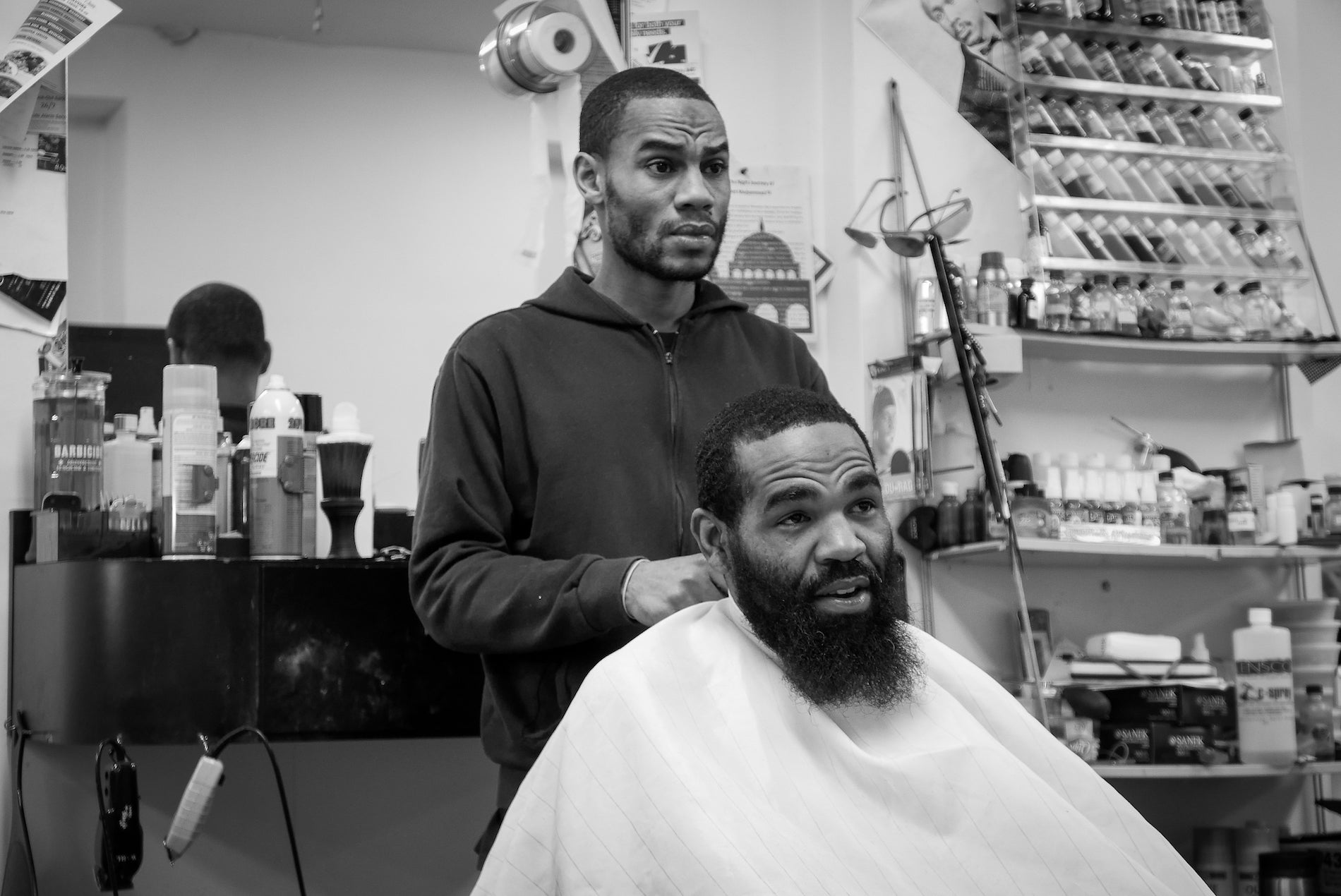
Do you remember the first time you cut my hair?
Oh, man, Tone. That’s a real hard one.
G doesn’t remember. I do, though.
G first cut my hair on the day of my 8th grade graduation in June of 2003. It was a dark caesar with square sideburns—a popular style at the time that really showed off my waves. At the time my dad and I had been looking for a new barber and luckily we lived not too far from Sharp Skills on Haverford Avenue in our Overbook Park neighborhood so we decided to give it a try.
Upon returning from a much needed vacation with his wife, I spoke with G over the phone about his experience as a barber and many other questions I’ve always wanted to ask.
“My fault for the noise here, Tone. I’m standing, I’m standing outside the supply store, I got a basket full of supplies in there, and I told him, “Look, I gotta call my man real quick.” I forgot you said it was gonna be 45 minutes.” (Laughs)
What made you want to pursue barbering?
Actually, barbering wasn’t my first choice. I initially wanted to become a carpenter but due to a highly competitive selection process, I chose to pursue barbering and get licensed. My plan was to always try getting into carpentry school again but I developed a comfortability in the barbershop and began to build relationships with the people. Every day that the barbershop was open, people expected me to be there.
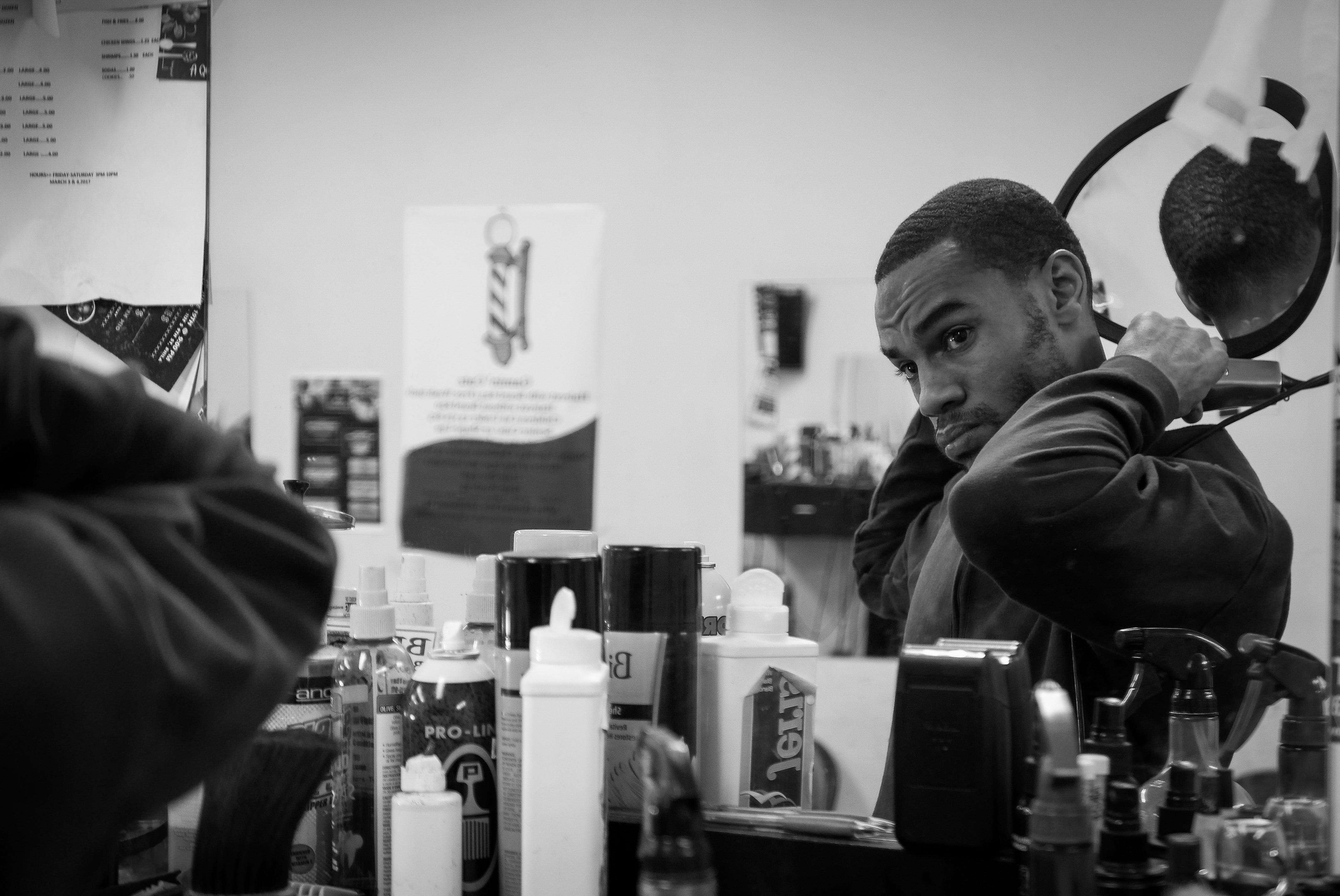
Who taught you how to cut hair?
I’ve been cutting my own hair from the age of 12 years old. I watched the barbers in my neighborhood and I thought, “I could do that.”
Can you talk about some of the guys you saw in the barber shop as a kid that influenced you?
As a young kid, I remember going with my mom to Sam’s Barber Shop on 60th Street between Market and Arch Streets. There was a barber there named Ali. He dressed nice, he was a quiet dude, didn’t have a lot of rowdiness around him, he was a respectable dude and I liked that.
I didn’t know him beyond coming in and getting a haircut and then leaving. But he was a respectable dude then, and he is still now.
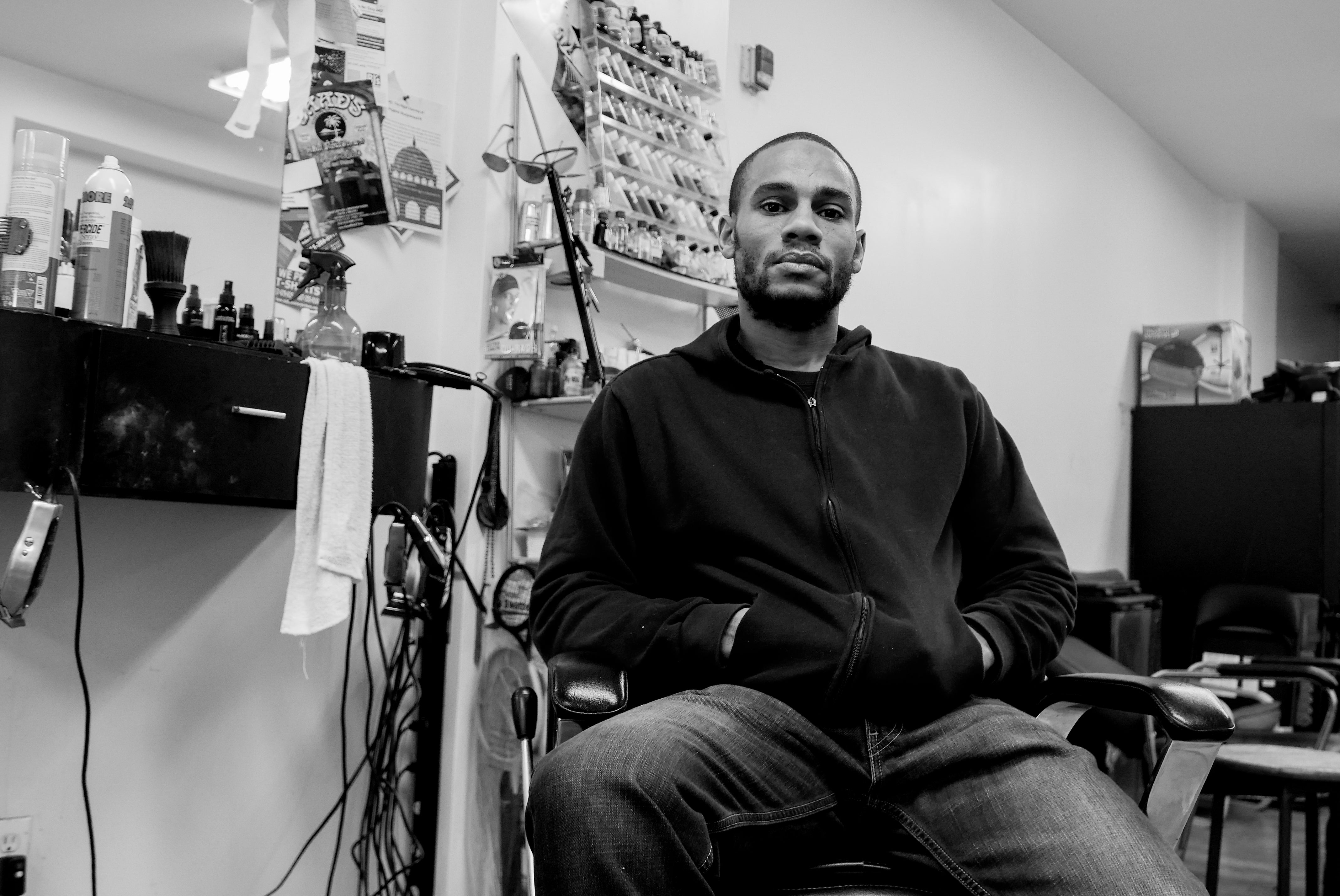
What separates a mediocre barber from a great barber?
The mediocre barber doesn’t want to explore every outlet possible in the barber and beauty industry. The great barber’s going to do whatever it takes. Try anything and continue to learn.
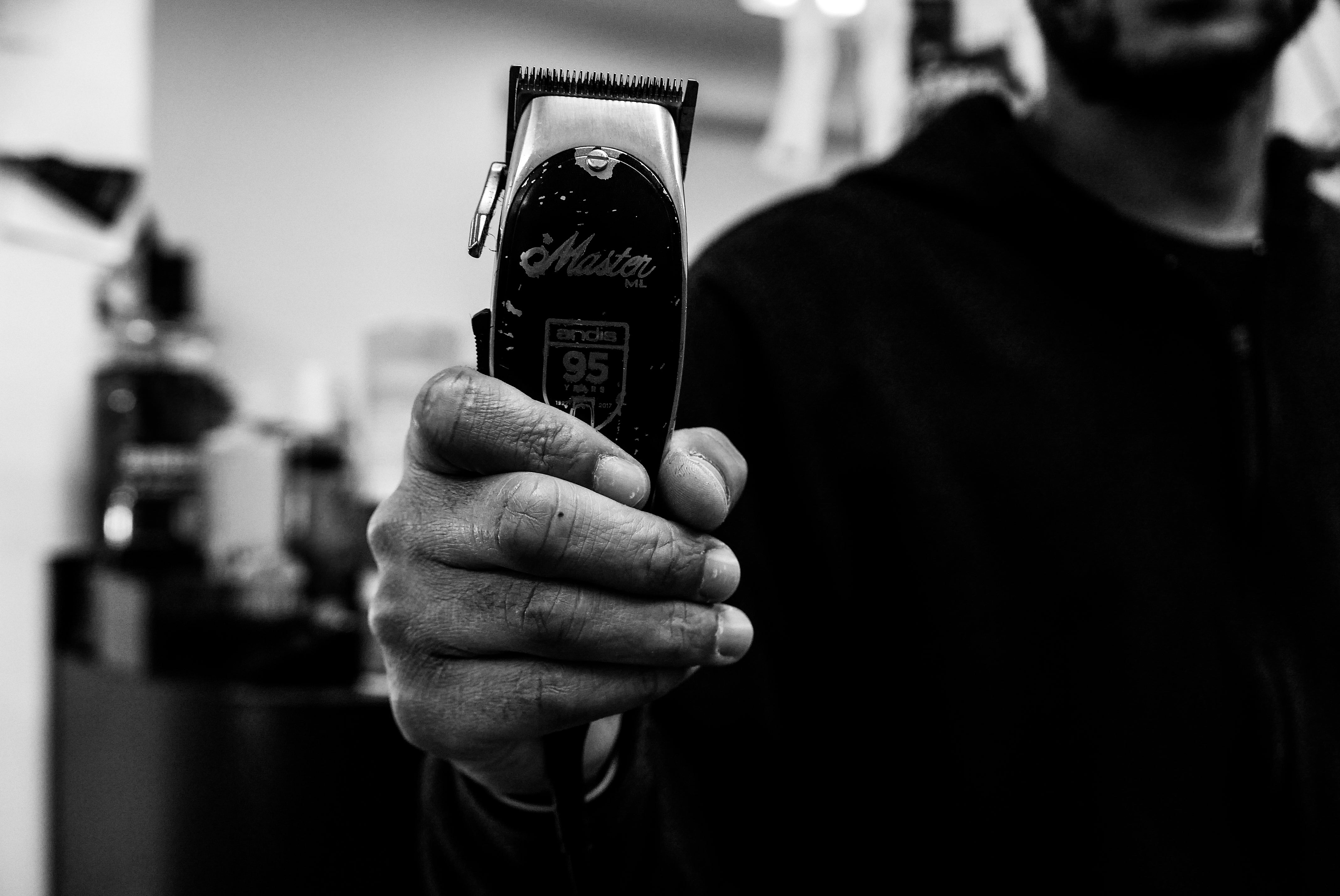
What advice would you give to a young barber who may think about this career?
The first is that many barbers starting out need to understand that this is a business so you have to approach it from that angle. You’ll most likely be working for yourself so have to know how to be both the boss and an employee of yourself.
Secondly, treat the people well.
Lastly, invest. Invest in your tools but also in being able to get away from the chair, too. Make time for yourself.
What makes Philly barbers so good?
It’s just expected. When you come in the shop, you just expect a great haircut. Philly barbers are so skilled, you gotta be able to fade, you gotta make sure the beard is on point. There’s just a standard here that we’re known for.
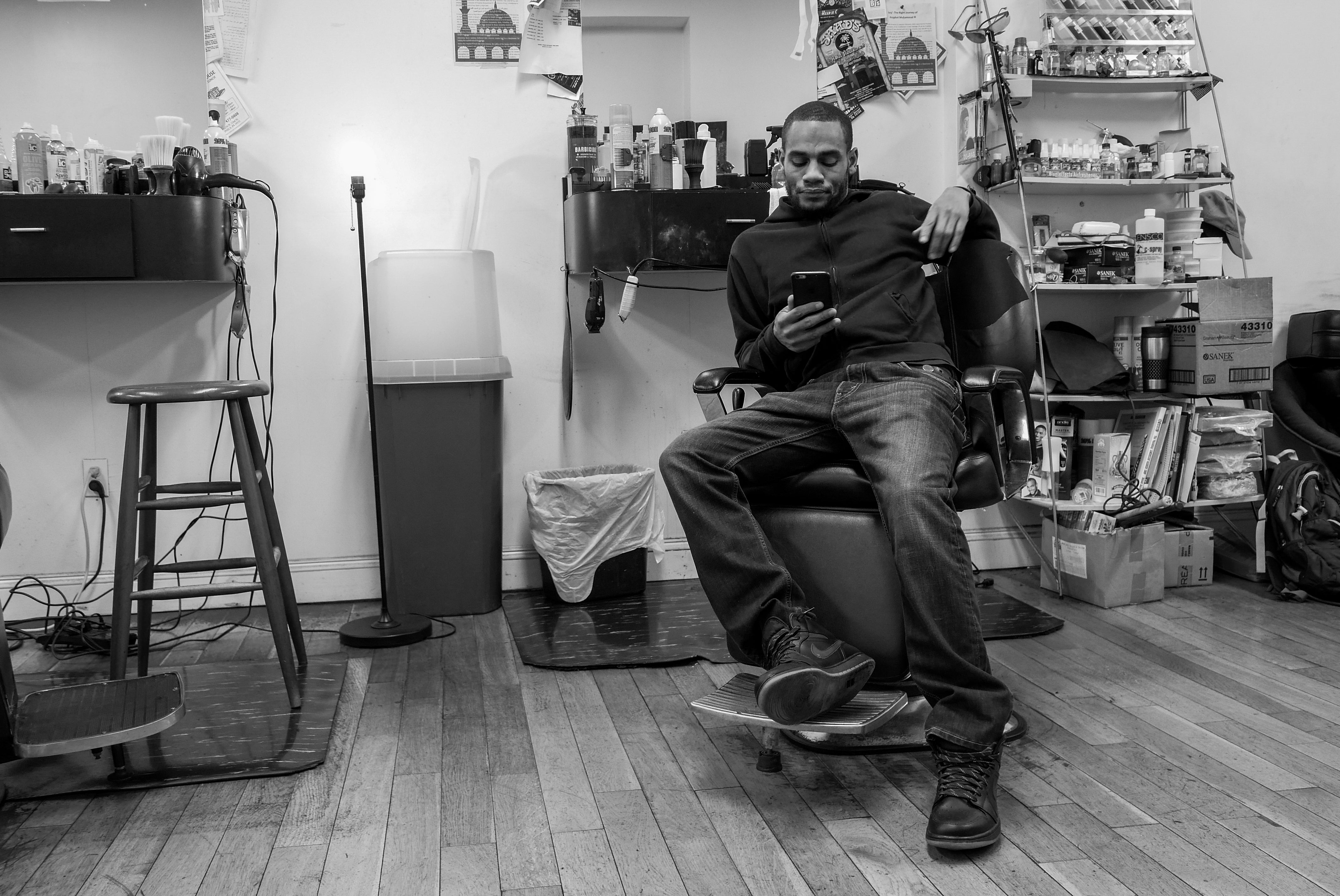
What’s your most and least favorite thing about being a barber?
I’m most excited about the people, my clientele, and the fact that I have the ability to do what I want. The most challenging would be the lack of security if, if something goes wrong with dealing with the people because you can only control yourself.
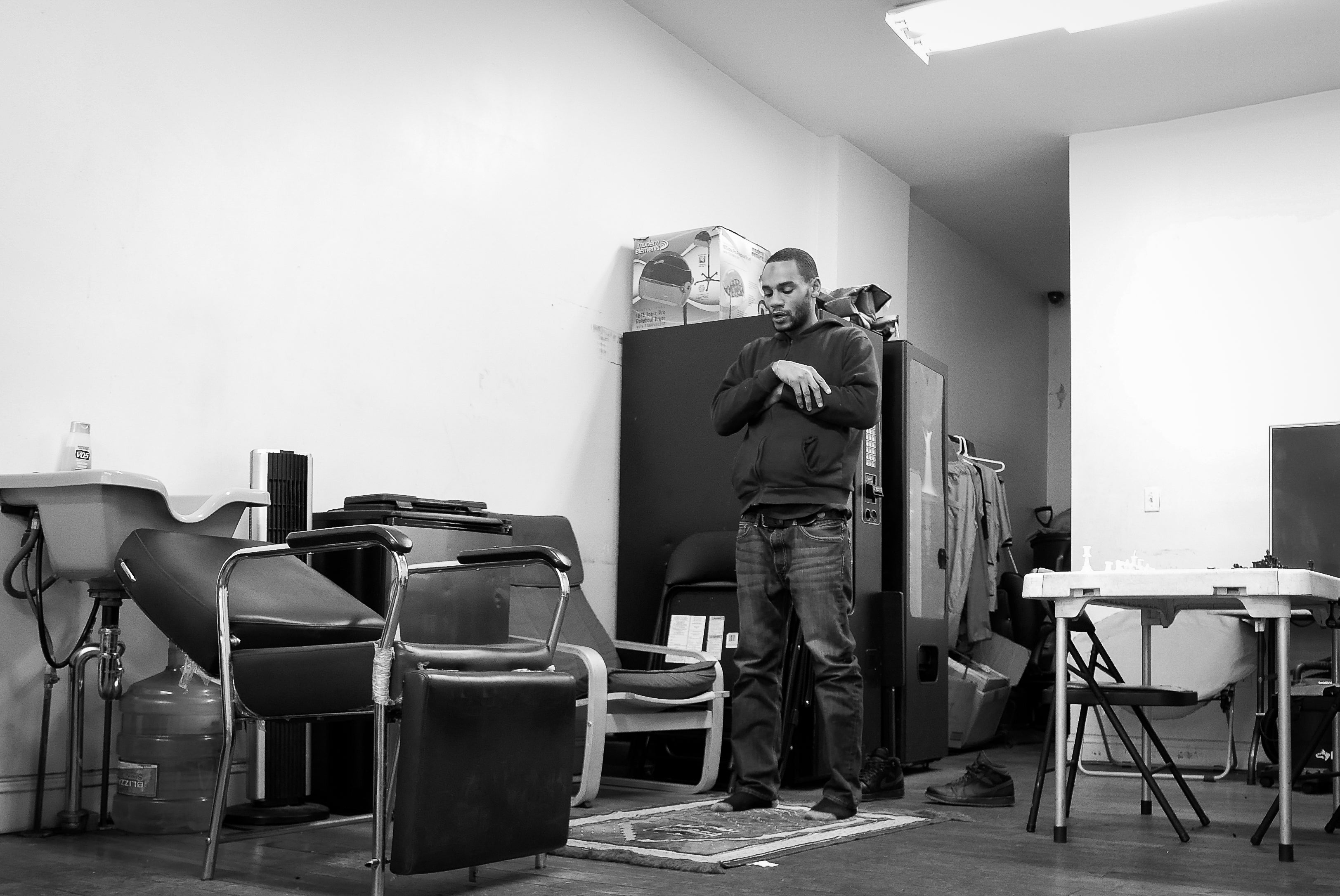
How does your faith influence the way you work?
In Islam, we’re taught that God expects you to treat people well. So you have to treat them how you would want to be treated. Everybody has a right to be treated a certain way and people are paying for a service so you want them to come back and spend some more money. You know what I’m saying? It’s Halal. In the faith, there’s Halal and there’s Haram. Halal meaning good, and Hiram meaning bad. So being as though this is Halal money, I really have no worries.
Is there anything in Islam that speaks to grooming?
Definitely. Fitra which is an Arabic word that is usually translated as “original disposition,” “natural constitution,” or “innate nature.” In a practical sense, it encourages you to keep your hair groomed, your mustache trimmed, your beard groomed nicely, and you know looking nice. Also, keeping your nails and pubic areas cut short because you want to eliminate any potential carry odor and bacteria that can be carried through the nails and hair.

Is it important for you is to have the opportunity to work in a shop with other Muslim barbers?
I wouldn’t say it’s important but it is nice to work with people that share your beliefs. I think it’s just a good general rule to have respect for different religious beliefs. Neither party should be offensive toward one another.
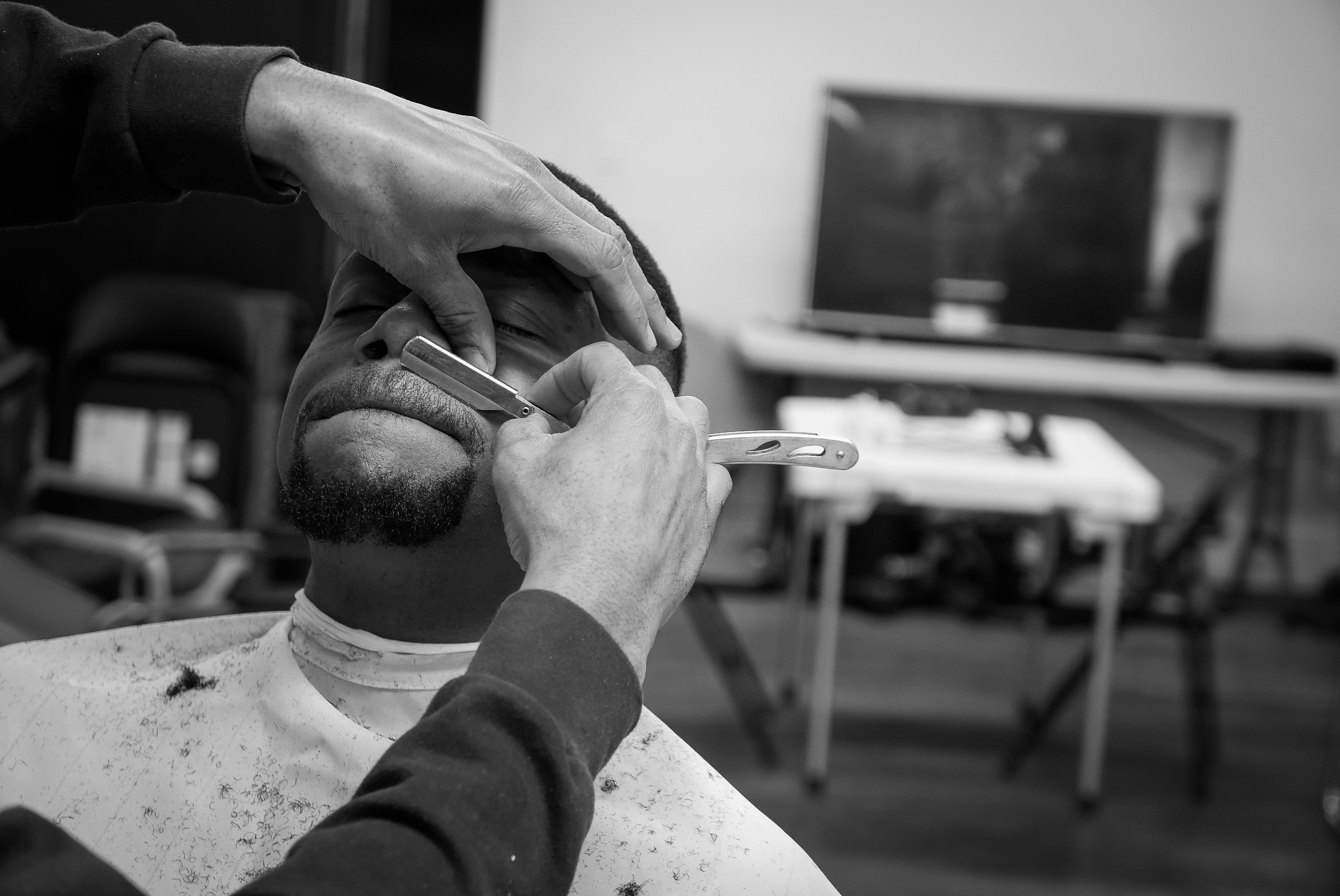
Are there any challenges you face as a barber due to COVID?
It’s a bit challenging. You’re not really able to cut the beard or face because you have to wear a mask. There’s a limit on how many people can be in the shop at once so the culture is a bit different. Things are just generally slow right now but that’s ok. I have some plans in the works to make up for the slow time.
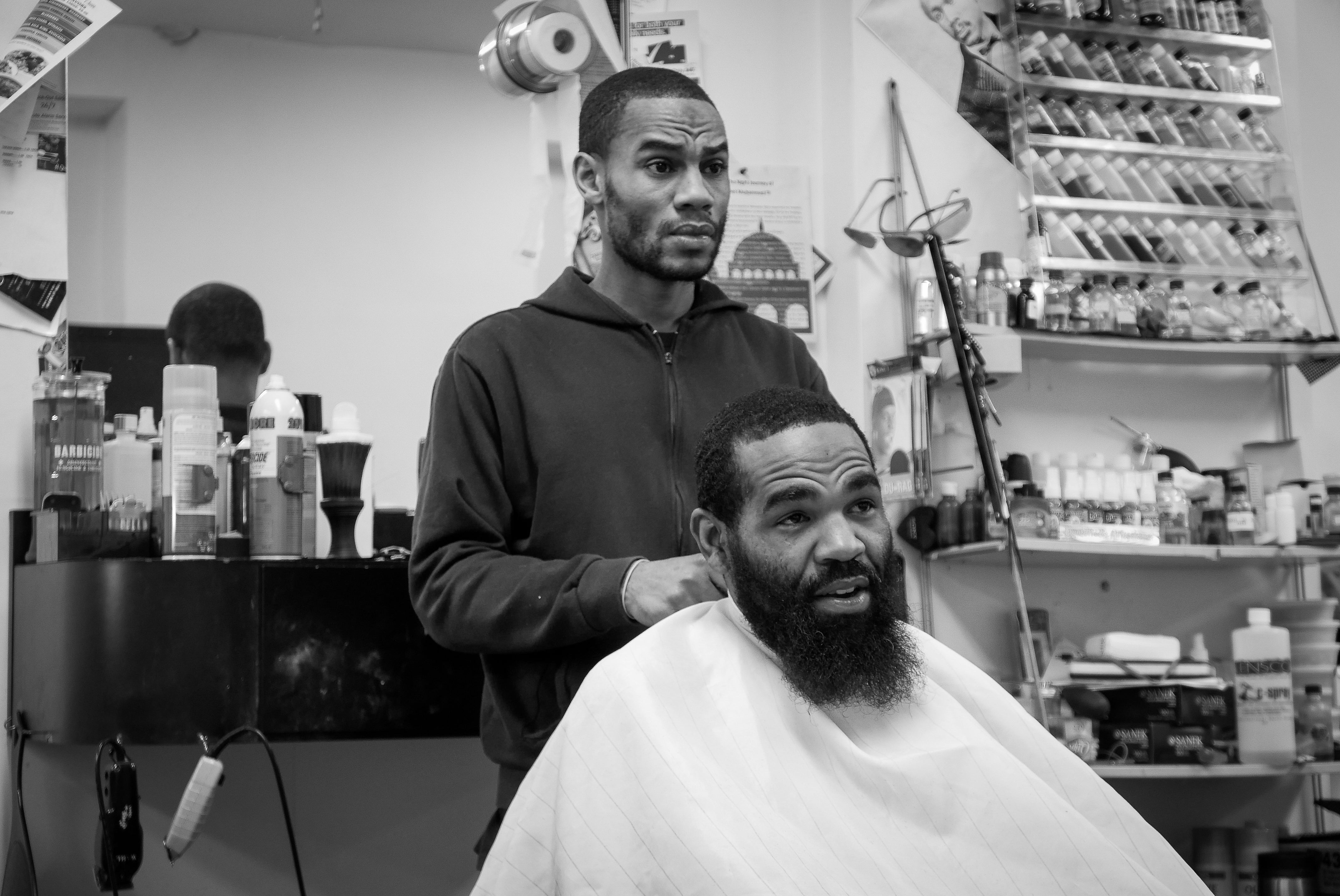
What’s one rule everyone should know when going to a new barber?
Tell the barber exactly what you need. If you have a picture that’s even better.
 WHYY is one of over 20 news organizations producing Broke in Philly, a collaborative reporting project on solutions to poverty and the city’s push towards economic justice. Follow us at @BrokeInPhilly.
WHYY is one of over 20 news organizations producing Broke in Philly, a collaborative reporting project on solutions to poverty and the city’s push towards economic justice. Follow us at @BrokeInPhilly.

Subscribe to PlanPhilly
WHYY is your source for fact-based, in-depth journalism and information. As a nonprofit organization, we rely on financial support from readers like you. Please give today.





